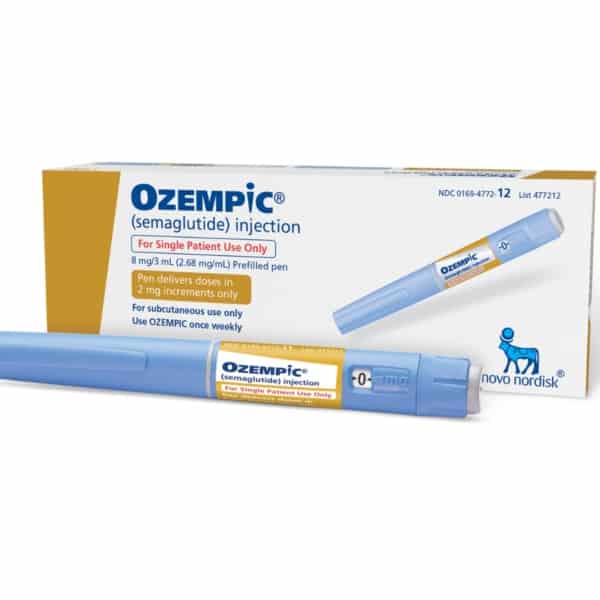
Audience
- Sentiment: positive
- Political Group: moderate
- Age Group: adult
- Gender: all
Overview
- Ozempic may help reduce alcohol consumption by mimicking a hormone that regulates cravings.
- A recent study showed participants on Ozempic reduced their alcohol intake by about 40%.
- The research highlights the potential for personalized treatment options for alcohol-use disorder.
Can Ozempic Help People Drink Less? A Look into the Latest Research
Have you ever faced a challenge and thought about how you could overcome it? Whether it’s keeping up with schoolwork, adjusting to changes in your life, or even dealing with difficult habits, finding a solution can sometimes feel like an uphill battle. Recently, researchers made a discovery that could change the lives of many people struggling with alcohol use. A medication called Ozempic, primarily known for helping with diabetes and weight loss, may also help those who find it hard to control their drinking. Let’s dive into what this means and how it was discovered!
What is Ozempic?
Ozempic is the brand name of a medication called semaglutide, which is generally used to help manage type 2 diabetes. This condition happens when the body either doesn’t produce enough insulin (a hormone that helps control blood sugar) or doesn’t use it effectively. Using Ozempic, diabetic patients can lower their blood sugar levels, and many people have also reported losing weight while taking it.
So, you might be wondering—what does any of this have to do with drinking alcohol? Well, it turns out that beyond its uses for diabetes and weight loss, scientists have found that Ozempic may also help reduce alcohol consumption—particularly for those who struggle with moderate alcohol-use disorder.
The Connection Between Alcohol and Ozempic
Alcohol-use disorder is a condition that affects millions of people, causing them to struggle with their drinking habits. This disorder can lead to serious health problems, social issues, and difficulties maintaining relationships. Often, those who deal with this condition find it hard to break the cycle of craving and consumption. But here’s where the interesting part comes in: a recent study investigated whether Ozempic could be part of the solution to help people drink less.
In the study, which was published in JAMA Psychiatry, researchers gathered 48 participants who admitted to having issues with alcohol. These participants were given semi-weekly doses of Ozempic over nine weeks, while another group took a placebo (a harmless sugar pill that doesn’t contain any active medicine). The results were quite promising! The people taking Ozempic reduced their alcohol intake by about 40% compared to those taking a placebo. Even more exciting, those on the medication reported fewer cravings for alcohol.
What Happens in the Brain?
You might be curious as to why Ozempic had such an impact on drinking habits. Well, it comes down to how the brain processes cravings and rewards. Our brain has pathways that control feelings of hunger and satisfaction. Ozempic mimics a hormone in our bodies called GLP-1, which helps regulate these pathways.
When someone drinks alcohol, their brain releases chemicals that make them feel good. These chemicals can lead to cravings—the desire to drink more. By taking Ozempic, it seems that these feelings and cravings are reduced, helping people take back control over their drinking habits. However, it’s important to note that this study was relatively small, and more research needs to be done to fully understand how and why this works.
The Challenges of Addressing Alcohol-Use Disorder
Despite the potential benefits of Ozempic, treating alcohol-use disorder is often a complicated task. Many people who struggle with this issue face various challenges. Common approaches to treatment can include therapy, support groups, and lifestyle changes. However, not everyone responds to these methods, and some people may need more options.
Alcohol-use disorder is not just about drinking too much; it can be tied to emotional issues, mental health conditions, and other factors that make it hard to quit, even if someone knows it’s negatively affecting their life. This is where medications like Ozempic could play an important role. Having more tools at our disposal means we can personalize treatment plans more effectively.
What’s Next for Researchers?
The excitement around the findings of this trial is palpable, but researchers also emphasize that we should take a cautious approach. This trial is the first of its kind to demonstrate the potential effects of Ozempic on reducing alcohol consumption in a controlled setting. But, as with most scientific studies, it’s just the beginning.
Further research will be needed to explore several key questions:
1. How effective is Ozempic for larger groups? The current study involved only 48 participants. To truly understand how well the drug works for more people, larger trials will need to be conducted.
2. What is the long-term impact? While the short-term results are promising, researchers will want to see how these effects hold up over time.
3. What are the underlying mechanisms? Delving deeper into how Ozempic interacts with our bodies and brains might uncover new insights into treating not just alcohol-use disorder, but other addictive behaviors as well.
Conclusion: A Glimmer of Hope?
Overall, the findings from this study bring a sense of hope for those coping with alcohol-use disorder. Having options beyond traditional therapy or support groups could make a significant difference in people’s lives. It reminds us that science continuously evolves, and new discoveries may offer solutions to age-old problems.
Think about it: medications we often associate only with weight loss or diabetes can also contribute to combating issues like alcohol dependency. This demonstrates the importance of keeping an open mind when it comes to medical treatments. However, we must remember that every person is unique, and what works for one individual may not work for another, so personalizing treatment is essential.
So, what do you think about the possibility of medications like Ozempic being used for alcohol-use disorder? Have you or someone you know ever dealt with similar struggles? Feel free to share your thoughts and experiences in the comments below! Your voice matters, and together we can create a supportive community.





